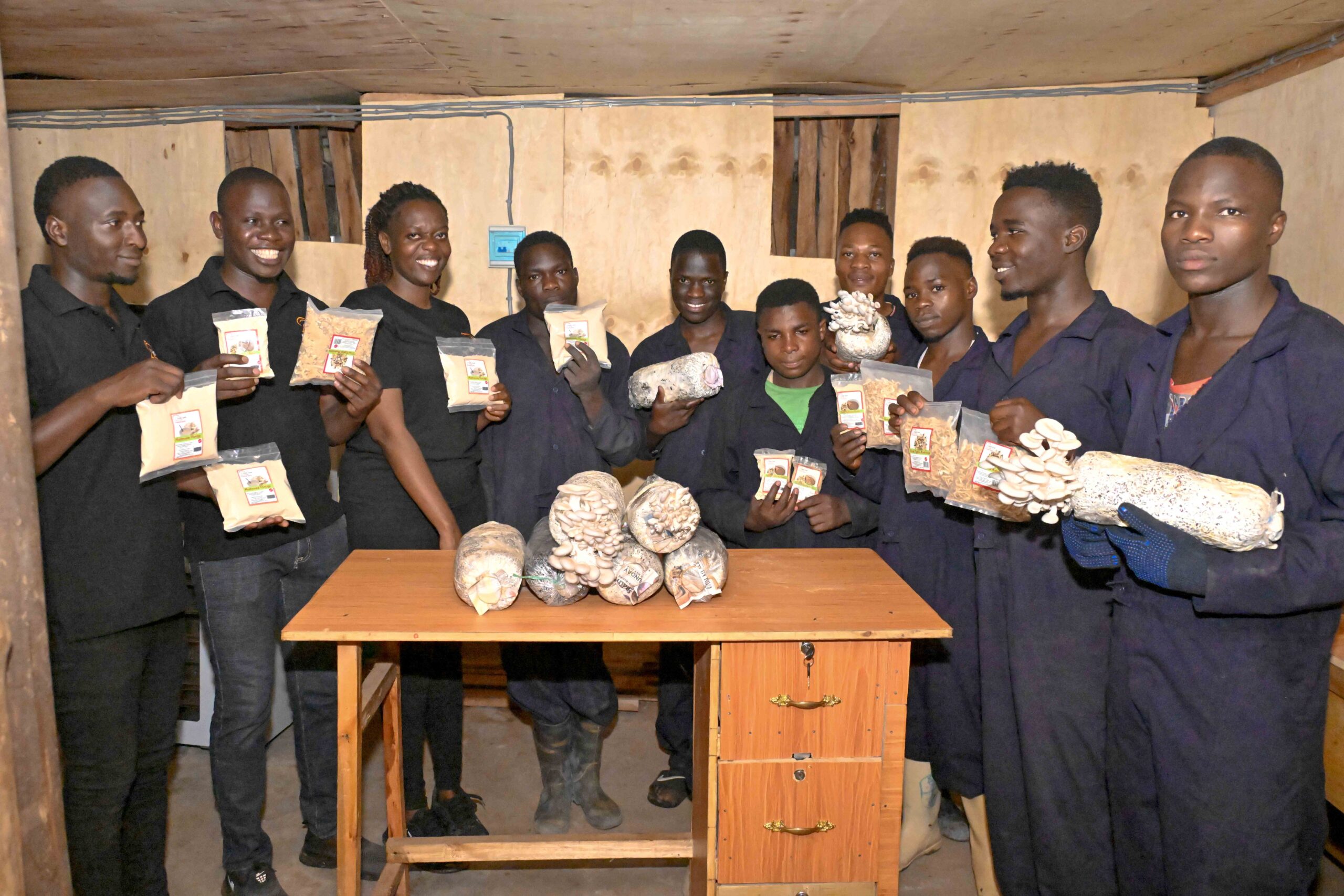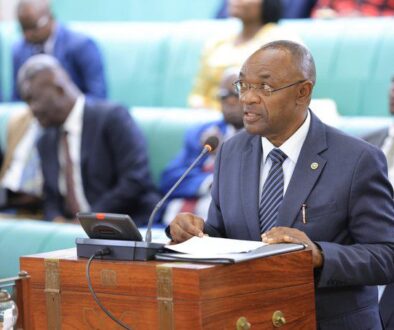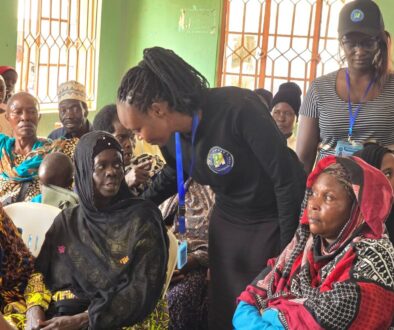Mushroom farmers appeal Museveni’ for support

By Our reporter
Mushroom growers in Kampala metropolitan area have appealed to President Yoweri Kaguta Museveni to assist them acquire a collection centre for easy market access and value-addition
materials to enable them increase their income base.
Princess Nassolo Pauline, a Senior Presidential Advisor- Elderly, last week toured different mushroom farmers around Kampala Metropolitan area many of whom were inspired by President
Museveni after visiting his demonstration farm in Kawumu, Luwero district.
According to Princess Nassolo, mushroom farming, an increasingly popular venture, is offering the urban poor a sustainable and profitable way to improve their economic situation with minimal
capital investment.
One mushroom grower Kiirya Abubakar of Looks Good Farm located in Bulindo Kira municipality in Wakiso district started his business in 2017 after realising that mushrooms, a versatile and
nutritious food source, rich in protein, vitamins and minerals had a huge market yet scarce.
He said Mushroom cultivation is uniquely suited to urban environments which do not require large tracts of land or direct sunlight unlike traditional crops. They can be grown in small
spaces such as basements and garages, making them ideal for urban dwellers with limited space.
“You don’t need a very big space. At the backyard of your house, you can start with 200 gardens of mushrooms costing about Shs.600,000. Use papyrus and poles which are easily accessed.
You only need water to irrigate the mushrooms two or three times a day depending on the weather. You don’t need chemicals to spray. Mushrooms are purely organic,” Mr. Kiirya said, adding that if one can construct a sizable structure of about 15 feet and put shelves or strings, it can accommodate over 1000 gardens of mushrooms.
According to Mr. Kiirya, mushrooms grow quickly with some varieties ready for harvest in as little as four weeks and each of the 200 gardens on average will give you 1.5kgs of fresh mushrooms in its lifetime of three to four months, selling them at a minimum of shs.5,000 a kilogram. This can give you about shs.1.5 million for those 3 to 4 months.
Because of this rapid turnaround that allows for multiple harvests per year, providing a steady source of income, many urban dwellers have embraced the initiative which now requires collective
efforts to ensure quality and easy access to the market.
“We request President Museveni to help us acquire the required machinery like dryers and a collection centre where mushroom farmers can gather their produce in large quantities to access bigger markets,” Mr. Kiirya said.
Mr. Bossa Livingstone, a resident of Masajja in Makindye Saabagabo informed Princess Nassolo that he used the Shs.1 million acquired from the Parish Development Model to establish
a mushroom business which he says is doing well. From mushrooms, Mr. Bossa also produces organic soap, lotion and charcoal lighters.
“We have seen you support coffee farmers, but you can also support us because mushrooms have a good market in East Africa especially in the DRC,” Mr. Arnold Ssekulima, a mushroom grower in Nansana appealed to President Museveni.
Another mushroom grower, Mr. Yona Bahimbwomugisha at Kijjabijo in Wakiso learnt about the venture after visiting President Museveni’s demonstration farm in Kawumu in 2018. He says
mushrooms need a controlled environment with proper temperature, humidity, and ventilation.
Mr. Yona who had Shs. 600,000 by then bought 200 gardens of mushrooms which he started with and he’s now able to harvest 20kgs of mushrooms per week, fetching shs.100,000 after selling at shs.5000 per kilo.
“I thank President Museveni for the initiative to teach us the youths about mushroom growing. It has worked well and youths like me have greatly benefited and no longer spend our time politicking than it was before,” he said.
Ms. Racheal Najjuuko, the CEO Saci Innovations Uganda Limited which deals in Mushroom value addition, says apart from having a collection centre and packaging house, farmers need more training to learn the basics of mushroom cultivation.
Another mushroom grower, Ms. Enid Kalinte of Bunga in Wakiso says she started with 80 gardens but has now doubled production due to the growing demand for mushrooms. She says by investing a small amount of capital, women and housewives who often have limited access to economic opportunities can create themselves a sustainable source of income which can help cover basic needs such as food, education, and healthcare hence breaking the cycle of poverty.
According to Princess Nassolo, through coming together, mushroom farmers will have easy market access and improved quality controls for better exports.
Mushrooms are low in calories and contain antioxidants, making them a healthy addition to any diet. Beyond their nutritional value, mushrooms have significant health benefits, including boosting the immune system, reducing cholesterol levels, and potentially fighting cancer.



March 2, 2025 @ 6:03 am
Your article helped me a lot, is there any more related content? Thanks! https://accounts.binance.com/en-ZA/register-person?ref=JHQQKNKN
July 6, 2025 @ 2:48 pm
Thanks for sharing. I read many of your blog posts, cool, your blog is very good. https://www.binance.info/it/join?ref=WTOZ531Y